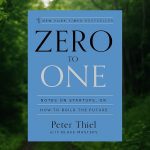Depression is a complex and deeply personal experience that affects millions worldwide. Books can offer comfort, understanding, and practical guidance for those navigating its challenges—whether for themselves or a loved one. In this article, we explore the top 10 books about depression ranging from memoirs that illuminate the lived experience to clinical guides that provide coping strategies. These selections blend scientific insight, personal narratives, and therapeutic wisdom to help readers feel less alone and more empowered. Whether you’re seeking solace, knowledge, or tools for recovery, these books serve as valuable companions on the journey toward healing and hope.
Top 10 Books About Depression
1. High Functioning: Overcome Your Hidden Depression and Reclaim Your Life By Dr. John D. Moore

In “High Functioning,” Dr. John D. Moore unmasks the invisible reality of people who outwardly seem successful and in control, yet secretly battle persistent depression. Drawing from years of clinical practice and personal stories, Moore reveals how “high-functioning” individuals internalize their struggles, camouflaging symptoms with achievement while quietly suffering within. The book introduces five practical tools designed to disrupt the destructive cycles of hidden depression, focusing on self-awareness, behavioral strategies, and support systems. Moore addresses the unique shame, isolation, and pressure experienced by high achievers. He helps readers reframe vulnerability as strength, providing techniques to manage perfectionism and self-criticism. With actionable steps and relatable anecdotes, “High Functioning” offers a roadmap to reclaiming joy, purpose, and connection. The book challenges prevailing stigmas about depression, advocating for a nuanced understanding that transcends stereotypes of visible distress. Both compassionate and practical, Moore’s guidance empowers readers to embrace self-care and build authentic relationships, ultimately breaking the silence and secrecy around high-functioning depression.
2. The Noonday Demon: An Atlas of Depression By Andrew Solomon

Andrew Solomon’s “The Noonday Demon” became an instant classic for its sweeping, deeply personal investigation of depression. Drawing from his own harrowing experience, Solomon explores depression’s devastating impact on individuals, families, and societies. He interweaves interviews, medical research, and historical perspectives, delivering a comprehensive portrait of the illness’s many faces. Solomon dives into genetics, treatment approaches, philosophical and cultural interpretations, and global outlooks, painting depression as complex but not insurmountable. His writing balances memoir and reportage, revealing the stigma and misconceptions still haunting those who suffer. The book champions therapy, community, and activism, while scrutinizing medication and systemic healthcare flaws. Solomon’s empathy for those afflicted is palpable, as is his belief in hope and resilience. “The Noonday Demon” stands out as an essential resource for anyone seeking to understand depression from the inside out and a guide for caregivers, loved ones, and even policymakers. Its blend of intimacy, scholarship, and advocacy makes it a cornerstone in the literature of mental health.
—
3. First, We Make the Beast Beautiful: A New Journey Through Anxiety By Sarah Wilson

Sarah Wilson’s deeply personal “First, We Make the Beast Beautiful” reimagines anxiety—and its connection with depression—as a guide for transformation rather than an affliction to be eradicated. Wilson, a journalist and entrepreneur, chronicles her lifelong experience wrestling with obsessive thoughts, panic, and cycles of self-doubt. Blending science, philosophy, and memoir, she invites readers to challenge and rethink their own anxious minds. Wilson shares Buddhist practices, wisdom from researchers, and practical life hacks for those who struggle with anxiety and depression. Her approach is compassionate, nonjudgmental, and often joyful. By demystifying these conditions and stripping them of shame, she empowers readers to seek meaning in their struggles. The book’s gentle humor, practical strategies, and candidness make it a compelling companion for anyone grappling with worry, despair, or self-criticism. Wilson’s message is clear: embracing anxiety and its inseparable twin, depression, can illuminate a unique, creative, and purposeful path forward.
4. An Unquiet Mind: A Memoir of Moods and Madness By Kay Redfield Jamison

Kay Redfield Jamison’s “An Unquiet Mind” stands as one of the most renowned memoirs on mental illness, blending the perspectives of scientist and patient. Jamison, a clinical psychologist and professor, reveals her lifelong battle with bipolar disorder, which frequently intersects with severe depression. Her prose is both brisk and lyrical, capturing the alternating terror and beauty of manic and depressive states. Jamison discusses her professional struggles, the stigma she faced, and her reluctance to accept treatment, driven by the fear of losing her creative spark. Through her honest account, Jamison deconstructs myths about mood disorders, sharing the toll they take and the hope treatment can offer. The memoir is a call for empathy and understanding, destigmatizing mental illness with scientific rigor and personal passion. Reflecting both vulnerability and accomplishment, “An Unquiet Mind” resonates with readers seeking validation, inspiration, and a sense of kinship in the challenge of depression and bipolar disorder.
5. Reasons to Stay Alive By Matt Haig

Matt Haig’s “Reasons to Stay Alive” is a raw, relatable, and ultimately optimistic story about his descent into, and gradual recovery from, crippling depression and anxiety. Written in brisk, accessible chapters, Haig uses lists, letters, and stories to convey the confusion, despair, and loneliness he felt during his twenty-something crisis. However, the book is equally a celebration of survival and small joys. By sharing his journey, Haig gives hope to those who feel trapped by mental illness and offers practical insight for loved ones looking to help. “Reasons to Stay Alive” is both a memoir and a guidebook, packed with hard-earned advice and wit. Haig’s candidness about suicidal thoughts is married to an unwavering faith in the ordinary pleasures—a walk outdoors, a book, a moment of kindness—that can make recovery possible. It’s a reminder that life, even at its darkest, is worth fighting for.
6. Lost Connections: Uncovering the Real Causes of Depression – and the Unexpected Solutions By Johann Hari

“Lost Connections” by Johann Hari challenges mainstream narratives around depression, shifting the focus from chemical imbalances to social and environmental factors. Drawing from global research and personal suffering, Hari argues that disconnection from meaningful work, relationships, values, and nature are the root causes of widespread melancholy and anxiety. Through compelling stories and investigative journalism, Hari reveals why the modern world breeds depression and how holistic, community-based solutions can restore hope. He critiques overreliance on pharmaceuticals, advocating a more nuanced view that integrates social healing and personal empowerment. The book’s greatest strength lies in its message that depression is not merely an individual failing but a societal one. Readers come away with renewed optimism about the possibility of meaningful change, both personally and culturally. “Lost Connections” reframes mental health discourse and equips readers with fresh tools for reconnecting—with themselves, others, and the world.
7. Feeling Good: The New Mood Therapy By Dr. David D. Burns

This classic by Dr. David D. Burns has become one of the most widely recommended self-help books for depression. Grounded in cognitive behavioral therapy, “Feeling Good” presents practical, powerful exercises to identify and counter distorted thinking patterns that perpetuate depression. Through step-by-step techniques, readers learn to challenge negative automatic thoughts, improve mood, and break the cycle of despair. Burns backs his guidance with research and clinical anecdotes, empowering individuals to take an active role in their own recovery. The writing is accessible, sympathetic, and hopeful. “Feeling Good” debunks myths about depression being a sign of weakness, instead framing it as an illness that can be managed and treated. The book’s influence on therapeutic practices is profound, making it a staple for both self-learners and therapists. Whether read alone or with professional support, “Feeling Good” remains a vital resource for lifting the burden of depression and reclaiming emotional health.
8. The Mindful Way Through Depression: Freeing Yourself from Chronic Unhappiness By Mark Williams, John Teasdale, Zindel Segal, Jon Kabat-Zinn

“The Mindful Way Through Depression” blends mindfulness practices with scientific rigor to offer new hope for breaking the cycle of recurring depression. The authors—leading experts in mindfulness-based cognitive therapy—guide readers through step-by-step meditations and exercises designed to interrupt rumination and automatic negative habits. The book explains how mindfulness helps people relate differently to their thoughts and emotions, cultivating greater acceptance and inner peace. Case studies and real-life stories illustrate the transformative power of these practices. The program is both practical and accessible, suitable for those new to mindfulness or struggling with chronic mood issues. Emphasizing compassionate self-awareness rather than self-blame, the authors provide a pathway toward wholeness and emotional resilience, even in the face of persistent sadness. “The Mindful Way Through Depression” is a powerful resource for anyone seeking effective, evidence-based tools to reclaim their life from depression.
9. Prozac Nation: Young and Depressed in America By Elizabeth Wurtzel

Elizabeth Wurtzel’s “Prozac Nation” is an unflinchingly honest chronicle of her coming-of-age with depression in the era of mass pharmaceutical marketing. With lyrical, confessional prose, Wurtzel documents her lifelong struggle with despair, addiction, and the search for relief. Her memoir became a cultural touchstone for the “medicated generation,” prompting conversations about stigma, access to care, and the personal cost of mental illness. Wurtzel’s candidness about self-harm, therapy, and antidepressants is both bracing and moving. Despite the darkness, the book is shot through with mordant wit and intelligence. “Prozac Nation” helped usher in a more open dialogue about depression, inspiring countless readers to confront their own pain and seek help. It remains vital reading for anyone wanting to understand the emotional landscape of depression, particularly as it manifests in youth.
10. Darkness Visible: A Memoir of Madness By William Styron

William Styron’s brief yet searing memoir, “Darkness Visible,” plunges readers into the heart of depressive illness. Drawing on his own descent into suicidal depression in late adulthood, Styron’s eloquent account dispels myths about depression as mere sadness or weakness. He characterizes the illness as a malign force—a total eclipse of joy, energy, and selfhood. Styron’s reflections on hospitalization, therapy, and the slow climb back to stability are vivid and compassionate. The book’s enduring power lies in its articulation of the wordless terror and isolation suffered by those afflicted. With literary grace, Styron uplifts the veil of silence, demanding compassion in a world that often marginalizes invisible pain. “Darkness Visible” is both a personal testimony and a universal meditation, offering hope and solidarity to all touched by depression.
Engage with Us: What Are Your Favorite Books About Depression?












